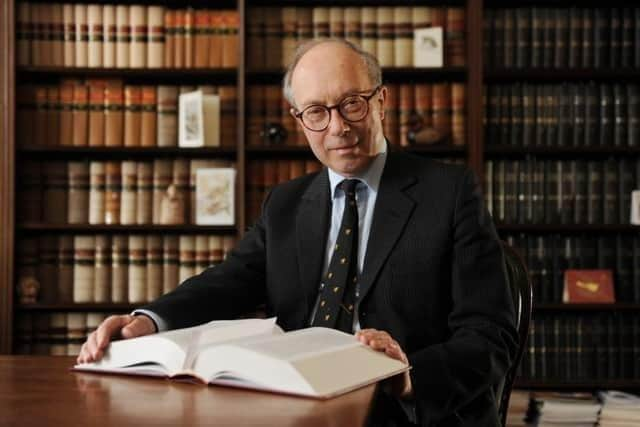Hate crime law is ‘unworkable’ and should be withdrawn, says former top Scottish judge
One of Scotland’s most senior legal figures has condemned a controversial new hate crime law as “unworkable” and called for it to be withdrawn.
Lord Hope of Craighead said the Hate Crime Act placed an “extraordinary burden” on Police Scotland and the legislation had “misfired”. He accused politicians of indulging in “gesture politics”, resulting in a law that was misunderstood by the public.
Advertisement
Hide AdAdvertisement
Hide AdPolice have been inundated with thousands of complaints since the Act was brought into force on April 1. There are concerns the burden of dealing with the legislation is eating up scarce resources and may result in the force making cuts later in the year.


Lord Hope was the most senior judge in Scotland and later served as deputy president of the Supreme Court of the United Kingdom from 2009 until 2013.
He told The Times: "Hate crime is a most unfortunate name for the Bill. It raises all sorts of thoughts in people's minds, without any idea of what the Bill is actually saying."
He said he had “no complaint with the intention of the Bill,” adding: “But it has misfired because it uses a very provocative title that leads people to think there's more in it than there really is, when you read through the detail.
"It's no good for the First Minister to say 'please be decent and don't trouble the police with vexatious complaints'. People don't behave like that."
Lord Hope said the Act placed an "extraordinary burden" on Police Scotland, adding: "I think it's unworkable if the police are going to have to administer this, because they have the burden of sifting and recording a myriad of complaints by people who are not really aware of the details of the legislation.”
He also argued the Act was not clear on what constituted stirring up hatred. "It's not just a matter of behaving in a manner [someone] might consider abusive," he said. "It also has to be proved the person intended to stir up hatred against a group of people, based on the characteristics mentioned, and that's a pretty difficult thing to establish."
The retired judge said the Act had been "presented in a way that raises the false hope of doing more than it actually can do”, adding: “But when you restrict it to what it can do, it's rather too loosely worded.”
Advertisement
Hide AdAdvertisement
Hide AdHe said: "The gesture politics here has meant sending out a message that has been misunderstood by people who don't grasp the qualifications and protections contained in the Act, and that is causing problems for the police.
"This thing was well intentioned, but one has to be much more cautious about how you go about it in this field. Because you are first of all dealing with crime. Second, you're dealing with complaints, which the police have. And thirdly, it deals with a large number of people who don't really read the statute, who act on impulse, and are not going to be put off by ministers saying don't bother the police."
